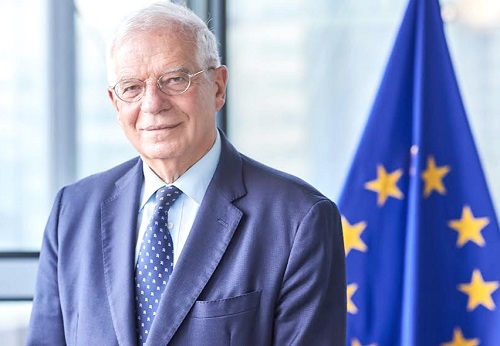
EU-Ghana partnership: grounded in history, designed for the future
This weekend, I will visit Accra for the first time as High Representative of the European Union. It comes amid turbulent times for Europe with conflicts on our doorstep, in particular, the Russian war of aggression against Ukraine and the tragic developments in the Middle East.
Advertisement
At the same time, we realise that the Sahel and the Gulf of Guinea will be similarly decisive in determining our future. My visit thus demonstrates our commitment to peace and stability in West Africa, with Ghana as a prominent partner considering its role in furthering democracy, peace and regional stability.
Legacy
Since 1957, the EU and Ghana have developed a long-standing and diverse collaboration. Critical infrastructure were part of our first area of cooperation. Together with its Member States, the EU currently serves as the first Foreign Direct Investor in the country, investing in car assembly lines, oil and gas industry, banana plantation, cocoa processing and much more.
With a significant EU support both to public bodies and to the private sector, Ghana is on track to become a major producer of vaccines, including against cholera and malaria. Ghana will provide some of the most needed vaccines, not only for Ghanaian citizens, but for the entire African continent and beyond.
In my visits to Africa, I have always been encouraged by the energy and drive of young people. Unfortunately, their aspirations do not always match the available opportunities. Youth unemployment is a pressing issue, both in Europe and in Africa, and Ghana is no exception.
During the last five years, more than 50,000 young Ghanaians and 100,000 small and medium-sized enterprises have benefited from EU programmes. Our support covers a variety of sectors, from agro-business, plastic and e-waste recycling, farming production and food processing to solar-taxis.
In our digital age, access to reliable information is paramount. This involves EU investments in digital infrastructure, digital literacy programmes and initiatives to promote digital innovation.
In 2022, the EU and Ghana launched a “Pact for Skills” that will offer new digital solutions and training packages to more than 10,000 Ghanaians, to help break glass ceilings. Last July, a first group of students received training in state-of-the-art 3D character animation in Accra.
Besides, the EU Erasmus+ programme allowed close to 2,000 Ghanaians to acquire world-class higher education. This year alone, we sent 60 Ghanaian students to cities such as Vilnius, Lisbon, Lyon and Hamburg in renowned universities across Europe. Erasmus+ offers a unique opportunity to create bonds between future leaders, who will shape the Europe and Ghana of tomorrow.
Climate change is a shared area of concern. Our partnership actively invests in climate mitigation and adaptation, making Ghanaian cities “smarter”, focusing on renewable energy projects, reforestation initiatives and sustainable agricultural practices. Three weeks ago, Ghana made great strides towards more sustainable management of forests, becoming soon the first African country to issue FLEGT licences.
Strengthening partnership in Security and Defence
During my visit to Accra, I will hand over 105 armoured vehicles and other critical equipment to the Ghana Armed Forces, amounting to €20 M. This will contribute to enhancing the security of the Ghanaian people and the stability of the entire region.
West Africa grapples with terrorism and political instability. As President Nana Akufo-Addo described it, we realise the gravity and scope of these security challenges. This is why we supported the organisation of the Accra Initiative Summit in 2022, promoting regional coordination.
Since Côte d’Ivoire, Ghana, Togo and Benin all face similar challenges and threats, the EU is levelling up its engagement throughout the Gulf of Guinea to €616M, to reinforce defence and security capacities and fight the main drivers of conflict and fragility.
Ghana plays a pivotal role in the region, thanks in particular to the relentless work of President Nana Akufo-Addo in his defence of the rule of law, democracy and stability in West Africa, also during his chairmanship of ECOWAS. The EU has and will continue to stand by ECOWAS in these testing times.
Of course, tackling Ghana’s security challenges requires more than armoured vehicles and drones. Successful conflict prevention requires improved public services provision and employment, mediation and dialogue. Vulnerable communities, and youth of Ghana in particular, look for a brighter future. The EU is currently investing more than €220M in the northern regions of Ghana precisely to address that challenge.
Conclusion
The EU-Ghana partnership has reached a new level in recent years. In response to regional dynamics, we have become a key security partner to Ghana. This partnership is about building the future we want for the next generations, in Africa and in Europe.
The writer is the High Representative of the European Union for Foreign Affairs and Security Policy



